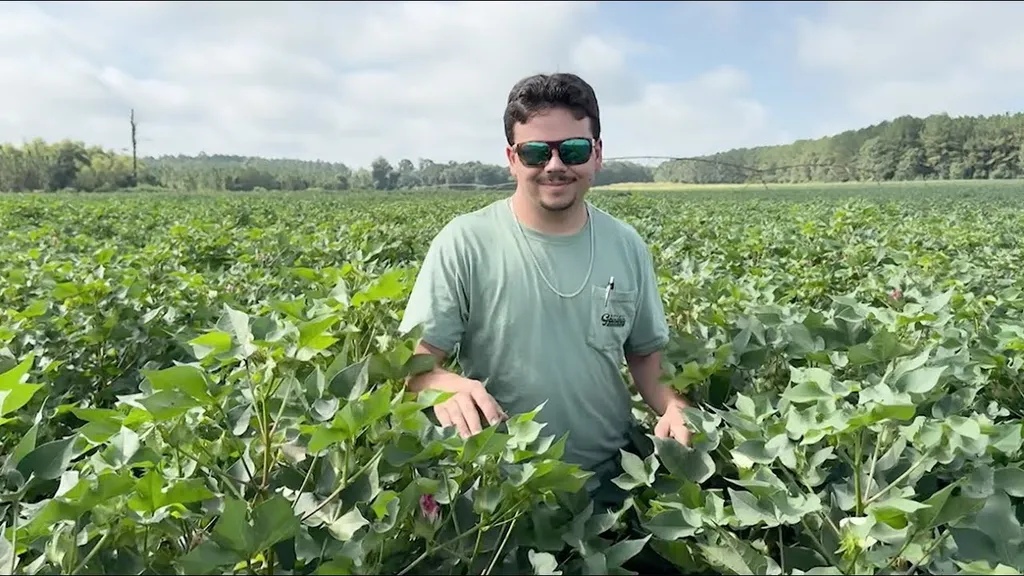In the heart of Georgia, a team of researchers led by Deus F. Kandamali at the University of Georgia’s College of Engineering has developed an innovative AI-driven assistant named CottonBot, designed to revolutionize cotton farming. This isn’t just another chatbot; it’s a sophisticated system that combines retrieval-augmented generation (RAG) with agentic large language models (LLMs) to provide cotton farmers with real-time, context-aware, and field-specific recommendations. Published in *Smart Agricultural Technology*, this research marks a significant stride in digital agriculture, promising to enhance decision-making, improve water use efficiency, and boost crop yields.
CottonBot stands out from traditional RAG-based systems by integrating dynamic data from soil moisture sensors and local weather forecast APIs. This integration allows it to deliver actionable, farm-specific advice on pest management, soil fertilization, weed control, nematode management, and irrigation. “Unlike static knowledge bases, CottonBot adapts to real-time conditions, making it a powerful tool for farmers,” explains Kandamali. The system leverages open-weight LLMs and runs locally through the Ollama framework, ensuring cost-efficiency, data privacy, and accessibility, even in resource-limited settings.
The experimental setup for CottonBot was meticulously designed to evaluate various embedding models and retrieval backends. The team found that the all-MiniLM-L6-v2 model paired with FAISS (Facebook AI Similarity Search) achieved the highest retrieval performance, while Llama 3.1 produced the most faithful and semantically accurate responses. For real-time irrigation support, CottonBot’s agentic tool interprets weighted soil moisture data to provide crop-specific recommendations, demonstrating its utility beyond text retrieval.
One of the most impressive aspects of CottonBot is its deployment as a cross-platform mobile application using FastAPI and Flutter, compatible with both iOS and Android devices. This accessibility ensures that farmers can easily integrate the tool into their daily routines, enhancing their ability to make informed decisions. “The goal is to empower farmers with the right information at the right time, ultimately leading to more efficient water use and improved crop yields,” Kandamali adds.
The commercial impacts of CottonBot are substantial. By optimizing irrigation and providing tailored advice, the system can help farmers reduce water usage, lower operational costs, and increase productivity. This is particularly crucial in regions where water scarcity and climate variability pose significant challenges to agriculture. Moreover, the local deployment of CottonBot ensures that sensitive farm data remains private, addressing concerns about data security and privacy.
Looking ahead, the success of CottonBot could pave the way for similar AI-driven assistants tailored to other crops and agricultural practices. The integration of RAG with agentic LLMs and real-time data sources represents a paradigm shift in digital agriculture, offering a scalable and adaptable solution for modern farming challenges. As Kandamali and his team continue to refine and expand the capabilities of CottonBot, the potential for AI to transform the agriculture sector becomes increasingly evident. This research, published in *Smart Agricultural Technology* and led by Deus F. Kandamali at the University of Georgia’s College of Engineering, is a testament to the power of innovation in addressing real-world problems and shaping the future of farming.

